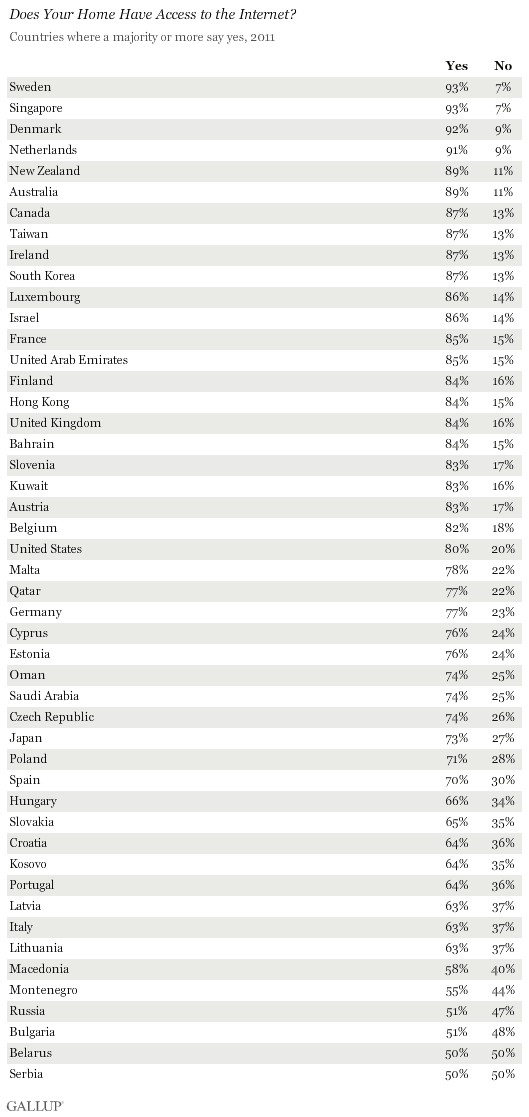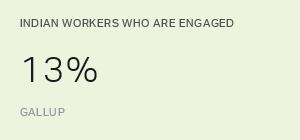Washington, D.C. -- Worldwide, 32% of adults in 2011 reported having home Internet access, according to Gallup surveys conducted in 148 countries. This is up from 29% in 2010 and 25% in 2009, marking the continuation of a steady uptick each year that Gallup has conducted surveys worldwide.
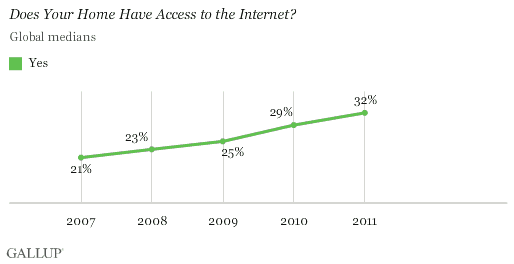
These results reflect responses to a core Gallup question -- "Does your home have access to the Internet?" -- asked of adults worldwide. It is important to note that these results reflect the percentage of adults who answered yes, rather than the percentage of households in a given country with Internet access. Additionally, it is possible that adults have access to the Internet through other means, including schools and universities, public libraries, Internet cafes, and smartphones. In the case of smartphones, it is possible some respondents consider this home Internet access while others do not.
Fewer than one in 10 respondents in 41 nations said they had Internet access in their home, including less than 1% in Burundi, Guinea, Mali, and Madagascar. Yemen, India, Afghanistan, Pakistan, and Haiti are also among the countries where home Internet access remains highly rare.
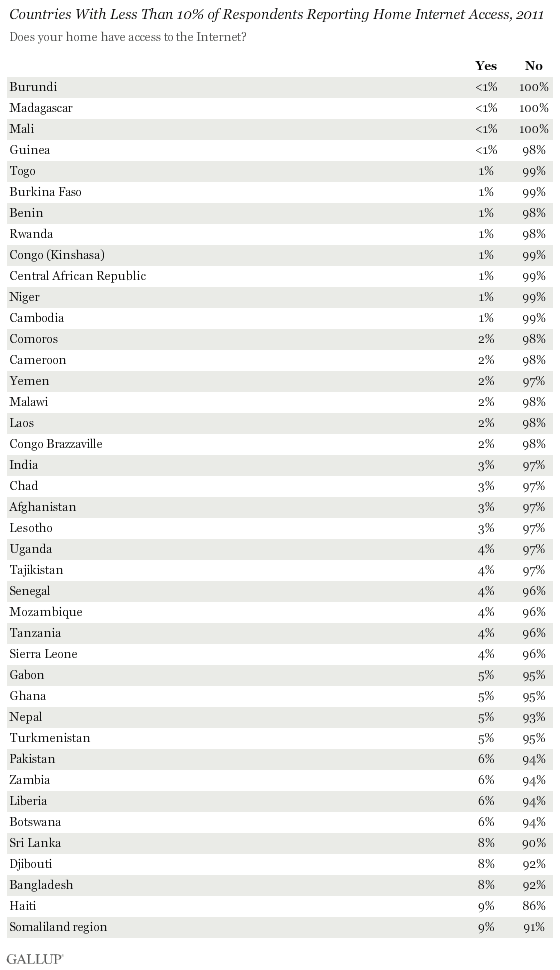
In 48 of the 148 countries surveyed in 2011, half or more adults report home Internet access. In 23 of these nations, 80% of respondents or more reported access.
Access in Sweden and Singapore is highest worldwide, both countries are tied with 93% of residents reporting home Internet access, followed by Denmark and the Netherlands, where more than nine in 10 do.
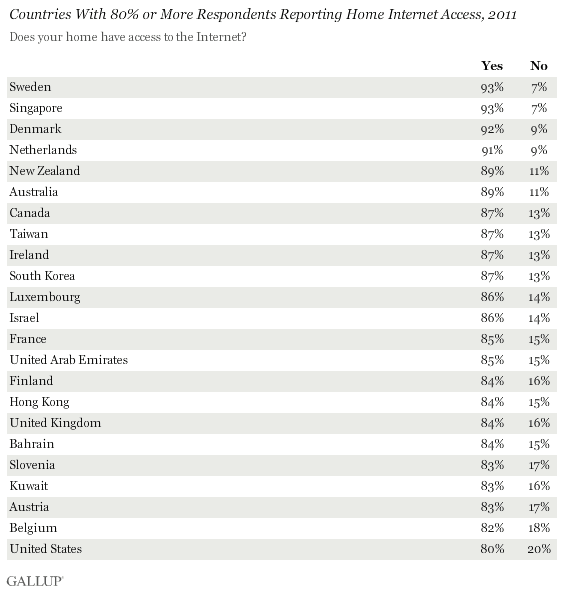
Economic Powers, Populous Nations Still Have a Ways to Go
The world's largest economies, as well most prominent emerging economies, tend to fall between the extremes of home Internet access worldwide.
The world's largest economy -- the United States -- is 23rd on the list, with 80% of adults reporting Internet access. Japan and Germany, the third and fourth largest economies, are close behind at 73% and 77%, respectively.
The world's second largest economy -- China -- falls in an entirely different category, with 34% reporting home Internet access, on par with the global average. Among the other emerging economies known as the BRICS, Russia and Brazil are on the higher end at 51% and 40%, while South Africa and India are on the lower end at 16% and 3%, respectively.
China and India are the world's most populous nations, and as such, home Internet coverage as a percentage of adults may be relatively slow to increase. In fact, except for the United States, Japan, and Russia, the world's next most populous nations, including Indonesia, Pakistan, Nigeria, Bangladesh, Mexico, and the Philippines, still find most adults offline at home.
For results from all 148 countries, see pages 2 and 3.
Implications
A nation's home Internet access coverage -- or lack thereof -- has implications for that population's economic strength and well-being as well as the global economy. The more people who have Internet access in their homes, the more likely they are to have easy, around-the-clock access to consume news and information, and in some cases, to sell and buy goods online.
Home Internet access also has implications for the education of a nation's youth, the productivity of its workers, and the civic engagement of its citizens. Home Internet access provides students with access to critical materials for education, workers with ways to stay connected and productive during hours away from their place of business, and all citizens with news and resources they can use to learn and connect with others.
Mobiles phones, however, are helping to fill the void in many countries and will be increasingly likely to do so as access to smartphones and tablet devices powered by mobile phone networks continues to increase worldwide. Still, additional Gallup research in sub-Saharan Africa has found that income is a key indicator of both mobile phone ownership and Internet access. As such, economic development more broadly is the key to expanding home Internet access worldwide.
For complete data sets or custom research from the more than 150 countries Gallup continually surveys, please contact us.
Survey Methods
Results are based on telephone or face-to-face interviews with at least 1,000 adults in each country, aged 15 and older, conducted in 2011. For results based on the total sample of national adults, one can say with 95% confidence that the maximum margin of sampling error ranged from a low of ±2.0 percentage points in India to a high of ±5.1 percentage points in Trinidad and Tobago. The margin of error reflects the influence of data weighting. In addition to sampling error, question wording and practical difficulties in conducting surveys can introduce error or bias into the findings of public opinion polls.
For more complete methodology and specific survey dates, please review Gallup's Country Data Set details.
